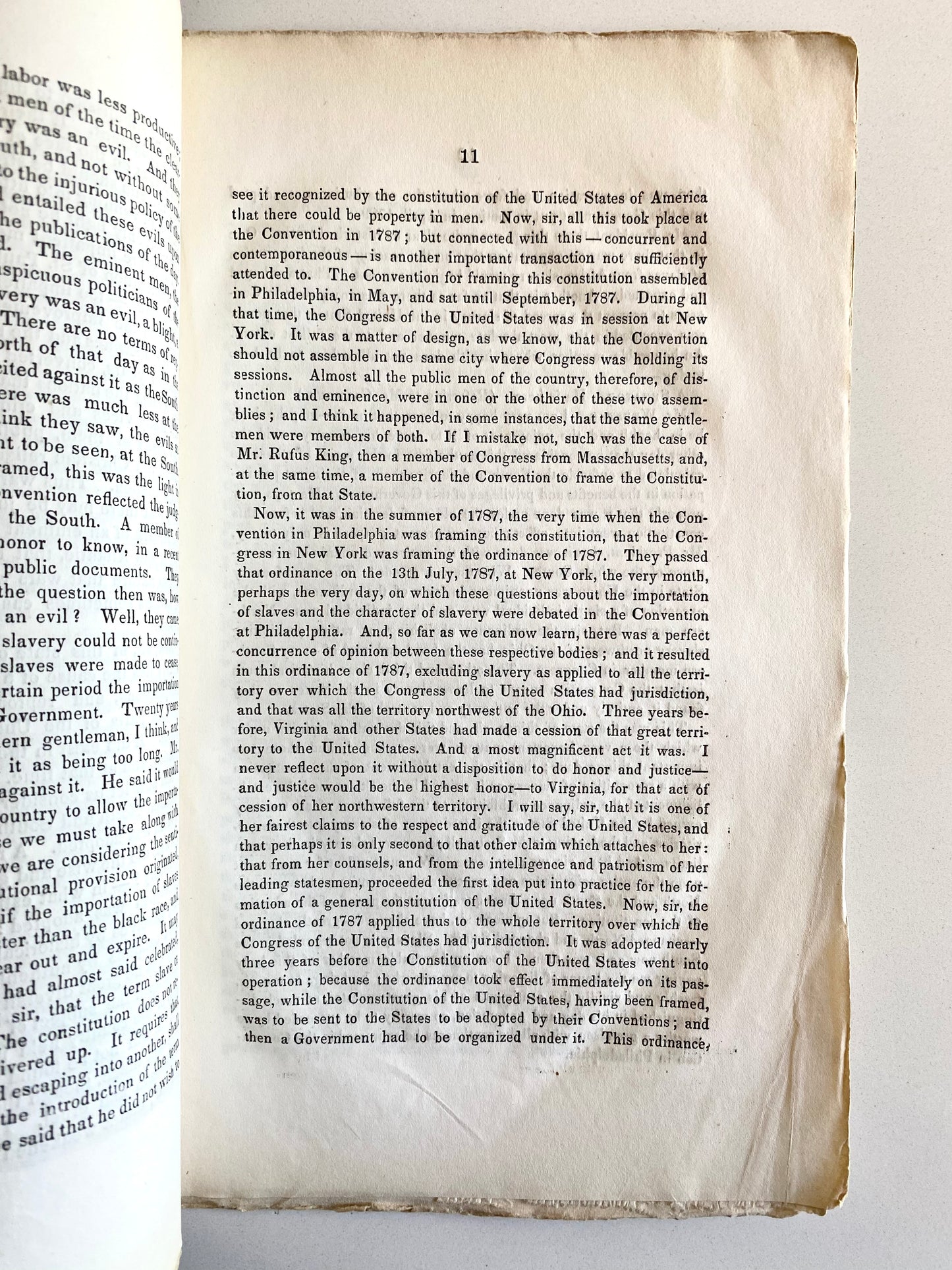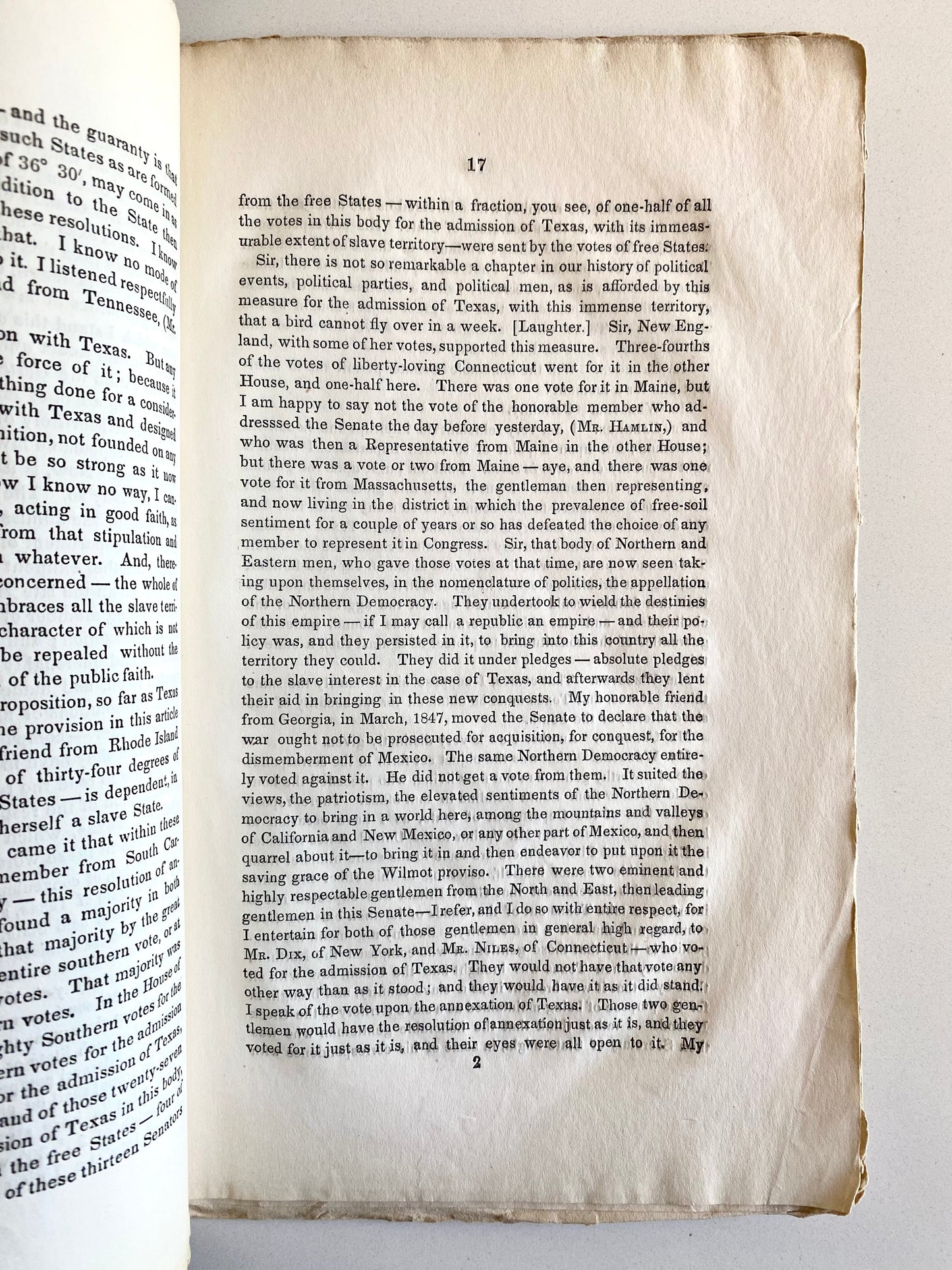Specs Fine Books
1850 DANIEL WEBSTER. Says "There Were Good People on Both Sides" of Slavery Issue.
1850 DANIEL WEBSTER. Says "There Were Good People on Both Sides" of Slavery Issue.
Couldn't load pickup availability
Fascinating address before the Senate by the public orator of the period, Daniel Webster. Webster was maligned by the abolitionists of the North. He was from Massachusetts, where many of the most active and vigorous abolitionist organizations were based. And he was, on principle, opposed to slavery.
That said, he viewed it as a secondary evil when compared to the union and unity of the United States. In the present discourse, he admits the wrong of slavery, but is then very generous with his views of the dispositions and views of the Southern legislators on the issue. His speech, which made slavery a second-tier issue, was applauded by Southern states and roundly rejected by anti-slavery organizations.
Webster, Daniel. Speech of the Hon. Daniel Webster, Upon the Subject of Slavery; Delivered in the United States Senate on Thursday, March 7, 1850. As Revised and Corrected by Himself, and Published by Permission, from the Daily Atlas, March 11th. Boston. Redding & Company. 1850. 39pp.
An example of his both-sidism in the address is as follows:
Now, sir, upon the general nature and character and influence of slavery, there exists a wide difference between the Northern portion of this country and the Southern. It is said on the one side that, if not the subject of any injunction or direct prohibition in the New Testament, slavery is a wrong; that it is founded merely in the right of the strongest; and that it is an oppression, like all unjust wars, like all those conflicts by which a mighty nation subjects a weaker nation to their will; and that slavery will, in its nature, whatever may be said of it in the modifications which have taken place, is not in fact according to the meek spirit of the gospel. It is not kindly affectioned. It does not “seek another’s and not his own.” It does not “let the oppressed go free.” These are sentiments among the Northern States. It has taken hold of the religious sentiment of that part of the country, as it has more or less taken hold of the religious feelings of a considerable portion of mankind.
The South, upon the other side, have been accustomed to this relation between the two races all their lives, from their birth; having been taught in general to treat the subjects of this bondage with care and kindness – have yet not taken this view of the subject which I have mentioned. These are thousands of religious men, with consciences as tender as any of their brethren at the North, who do not see the unlawfulness of slavery; and there are more thousands perhaps that, whatsoever they may think of it in its origin, and as a matter of depending on natural right, yet take things as they are, and, finding slavery to be an established relation of the society in which they live, can see no way in which – let their opinions on the abstract question be what they may – it is in the power of the present generation to relieve themselves from this relation. And, in this respect candor obliges me to say, that I believe they are just as conscientious, many of them, and of the religious people all of them, as they are in the North in holding different opinions.
Original wraps with some chipping and handling, but generally solid and clean.
Share








